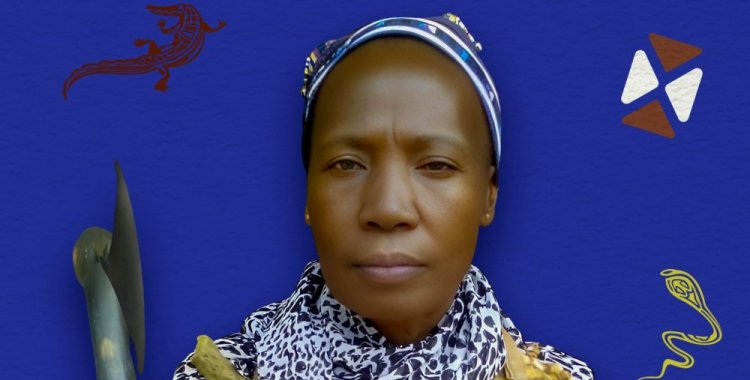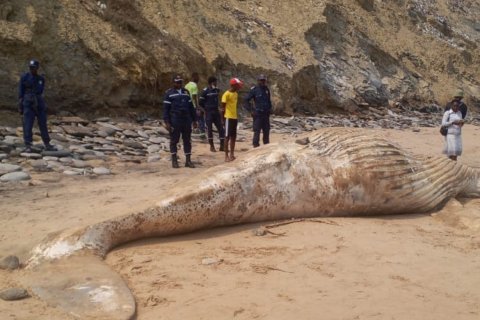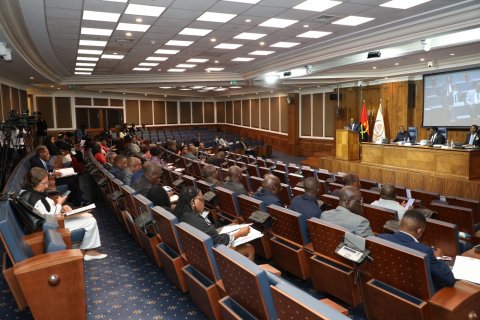Written by José Inácio Bwameso, the book, which will be presented in Lisbon, is the first literary work to tell the story of this people, a Bakongo subgroup that split off from the main nucleus of the former Kingdom of Kongo around 400 years ago.
Led by a woman since the mid-18th century, the ethnic minority adopted the name Basuku de Ngudi-a-Nkama, a title given to all women who assume the throne.
"The importance of this book is related to the dissemination of this ethnic minority, its history, its culture", Bwameso told Lusa news agency, highlighting the strength of women in leadership.
"At a time when we talk about female empowerment, the Basuku show us that more than 400 years ago they overcame machismo and managed to occupy and lead a throne, a reality that continues to this day", adds the 37-year-old Angolan author, originally from Cazenga, in the province of Luanda.
According to the author of the work, who has a master's degree in Educational Sciences, specializing in History Teaching in Angola, from ISCED in Luanda, female leadership proved to be decisive "from the washing of the royal insignia at Lake Kosa Malunga", a crucial moment in the history of these people.
After this moment, "the Basuku of Angola have been led by a woman and it was determined that, from that moment on, the succession would be through the maternal line. The queen would be replaced by a sister, daughter or granddaughter, but she had to be from the line of succession and born of a woman".
When asked about the current number of Basuku, the author says that "it is a pertinent question", but difficult to answer, "due to the fact that many of them are spread throughout the country".
In addition to this fact, it is difficult to obtain exact statistics "because of the rural exodus that occurred during the armed conflict that the country experienced".
"In addition to the Basuku who live in Lunda Norte, we also have a small group in Massau, in the province of Uíge, a nucleus that split off from the Basuku of Ngudi-a-Nkama of Lunda", Bwameso also points out.
"We have an epic work, the first book about the Basuku of Angola, written by a true mwana ntotu (son of the land), or mwana nsi/tchi (son of the country)", writes Aristóteles Kandimba, cultural producer and writer, in the preface to the work.
With the seal of approval of NTU&EU SOCIETY, the book is divided into three chapters: Origin of the Basuku of Angola; The land of the Basuku and other peoples around 1900 to the present day; and Implementation of the Portuguese colonial regime and the resistance of the Basuku.
The 136-page book presents the contact between the Basuku and their Bantu neighbors (Lunda, Mbangala, Cokwe/Tchókwe, Xinji, Holo and Kadi) and with Europeans before colonization (Belgians and Portuguese), as well as the establishment of the Portuguese colonial regime and Basuku nationalism (the Baixa de Cassanje revolt).
Bringing the history of these people to the present day, the book also includes an interview with the 13th and current queen of the Basuku of Ngudi-a-Nkama of Angola, known as "Her Majesty Anastância Gabriel".
The book's launch session will be held at the Museu de Lisboa - Santo António, at 6:30 pm, with a presentation by Aristóteles Kandimba, writer and founding member of the book's publisher, and will feature the participation by videoconference from Angola of the queen of the Basuku of Ngudi-a-Nkama and the author of the book.
The presentation at the Lisbon-Santo António Museum, where the work is available for purchase for 15 euros, is part of a work that has been developed by the museum to promote Angolan culture in Portugal and which has already resulted in the publication of several studies on the presence of Santo António in Africa and Brazil.







